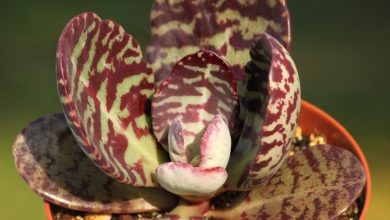Underground gardens: cultivate all year round in a sustainable way. bolivia
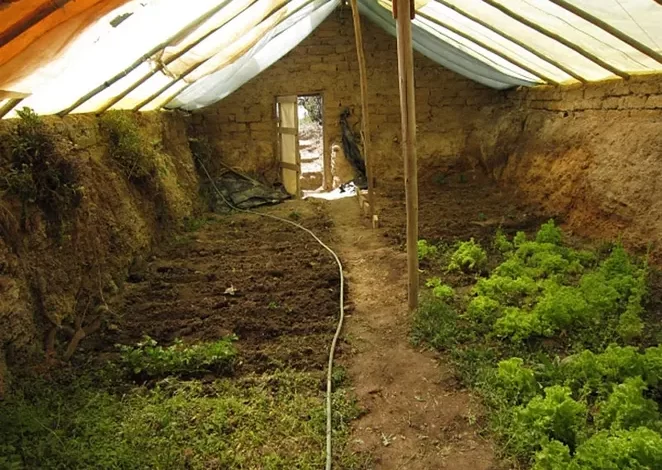
An incredible experience in Bolivia: an ecological family farm with technology for sustainable development. Underground gardens that produce food all year round without consuming energy or polluting.
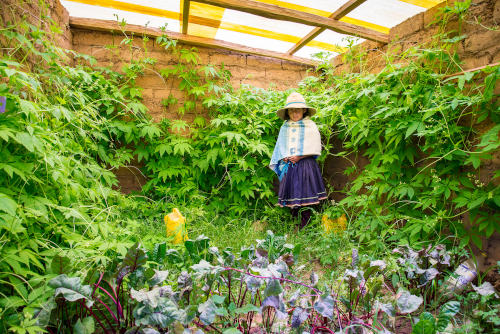
In this place tradition and innovation are mixed. Thanks to the characteristics of these underground gardens, they can cultivate at an altitude of more than 4,000 meters throughout the year, even if the temperatures are low.
What are underground gardens?
Underground gardens are underground solar tents that make better use of the sun’s light and heat. Thanks to the help of a Swiss researcher, at the Ventilla Ecological Farm, in La Paz (Bolivia), they were able to learn about this technology of underground food production.
With this form of cultivation they take better advantage of everything that nature gives them for free. The sun is used to reach the right temperature inside the rooms where the underground gardens are, without having to go to temperature control by other more expensive and polluting methods.
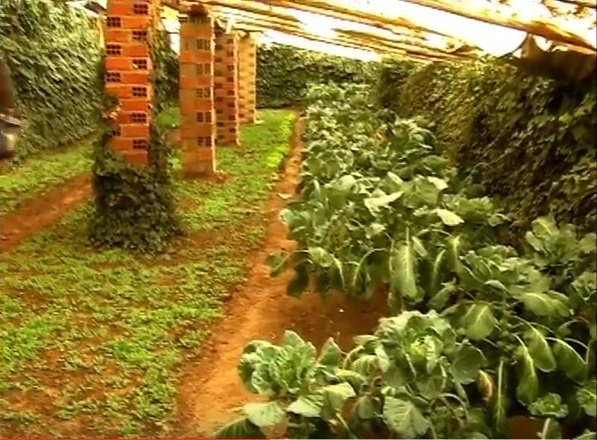
In this post we will see what its foundation is and I also leave you with a very interesting video where the protagonists show us these underground gardens. In addition to the underground gardens, they show other ecological and respectful techniques with the environment that they use in the organic farm: fertilization, pest control and how to obtain energy with the manure of their animals with which they are self-sufficient without polluting or spending a lot of money.
Underground gardens: Walipinis
As we have seen, these underground vegetable gardens are very useful in places with cold winters. They allow the temperature not to be an obstacle to produce food all year round.
In this ecological farm in Bolivia they have two types of underground gardens or underground crops: the Sayaris and the Walipini. Here I leave the video (they talk about the underground gardens from minute 1:00 and then at 3:30). I found everything they do and their sustainable techniques very interesting:
A Walipini (meaning “place of warmth” in an indigenous dialect) is like a greenhouse partially embedded in the ground. They have a sloping, transparent or translucent cover that allows sunlight to enter the interior. During winter, the sun’s rays hit the surface of the sunroof at an almost perpendicular angle. This, together with the protection and insulation of the earth walls that surround these underground gardens, makes it possible to achieve and maintain an adequate temperature. A warmer temperature is reached inside than outside, optimal for growing aromatic herbs, vegetables and organic vegetables.

The Sayaris have the same foundation but the underground gardens are even deeper, reaching higher temperatures and humidity.
Ecological and sustainable techniques
As in any good organic garden, on this farm they take advantage of the presence of beneficial and useful plants and insects to fight against pests and diseases. For example, one of their most common pests is the leafminer fly that attacks their Swiss owls. This pest has a predator, a spider that lives on the roof of the Walipinis or underground orchards and that descends to the crops from time to time to feed on the fly, eliminating the pest (this is the integrated fight, a basic technique of Agriculture ecological).
They have beds where the Californian worms that make the vermicompost live and feed, with which they fertilize the plants (min 2:50 in the video). They also use part of this vermicompost to make biol, another organic or ecological fertilizer. In addition, as they tell us in the video, they make their own homemade fungicide preparations (to eliminate fungi) with beneficial plants and manure or purine remains.
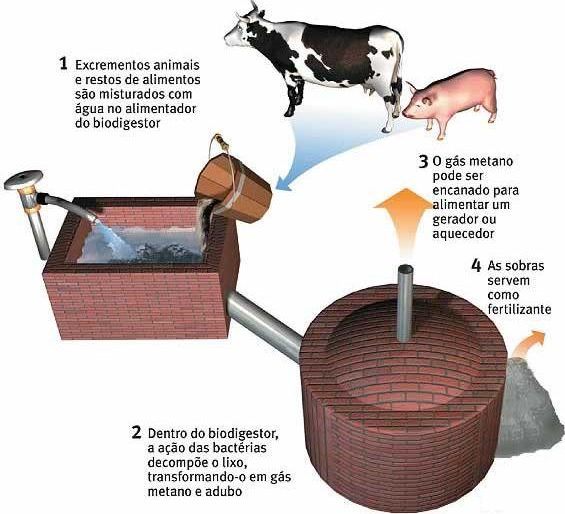
His initiative to produce methane and biogas with the manure of his animals seemed to me most interesting. As they tell us in the video that I left you above (min 6:12), they have homemade biodigesters where, with water and manure, they produce these gases with which they use to supply electricity, hot water and natural gas for the kitchen of the farm.
I hope you have found the idea of underground gardens interesting. If you liked it, you can follow us on Facebook (Agrohuerto Community) or subscribe to our blog.


![Photo of Potassium in the Garden: [Use, Shortcomings, Advantages and Disadvantages]](https://www.complete-gardening.com/wp-content/uploads/2022/08/potassium-in-the-garden-use-shortcomings-advantages-and-disadvantages-390x220.jpg)
![Photo of Types of Tomatoes and the Most Cultivated Varieties: Complete Guide [breadcrumb]](https://www.complete-gardening.com/wp-content/uploads/2022/08/types-of-tomatoes-and-the-most-cultivated-varieties-complete-guide-breadcrumb-390x220.jpg)
